 In my lit theory class, discussing José Esteban Muñoz’s Cruising Utopia: The Then and There of Queer Futurity, I listened to the sort of defences of heteronormativity and marriage that I thought didn’t exist anymore among twenty-somethings, at least those who have just read maybe one of the greatest pieces of queer theory ever written. “I think marriage is important because it validates a relationship between two people. It gives state approval, it tells society your relationship is real.” “But what if Muñoz’s vision comes true in the future? Will what we call heteronormativity now become queer? What if straight people and marriage and children become the minority?” “Muñoz wants us all to be able to touch each other. But I don’t like touching people.” Admittedly, the question “What’s the opposite of queer? Boring?” has a certain truth to it, but I was still scared. All this only convinced me even more of the truth of Muñoz’s rejection of 21st century LGBT pragmatism that focuses on marriage equality and assimilation into the neoliberal capitalist nation state. Since when have such goals been classified as “queer”?
In my lit theory class, discussing José Esteban Muñoz’s Cruising Utopia: The Then and There of Queer Futurity, I listened to the sort of defences of heteronormativity and marriage that I thought didn’t exist anymore among twenty-somethings, at least those who have just read maybe one of the greatest pieces of queer theory ever written. “I think marriage is important because it validates a relationship between two people. It gives state approval, it tells society your relationship is real.” “But what if Muñoz’s vision comes true in the future? Will what we call heteronormativity now become queer? What if straight people and marriage and children become the minority?” “Muñoz wants us all to be able to touch each other. But I don’t like touching people.” Admittedly, the question “What’s the opposite of queer? Boring?” has a certain truth to it, but I was still scared. All this only convinced me even more of the truth of Muñoz’s rejection of 21st century LGBT pragmatism that focuses on marriage equality and assimilation into the neoliberal capitalist nation state. Since when have such goals been classified as “queer”? 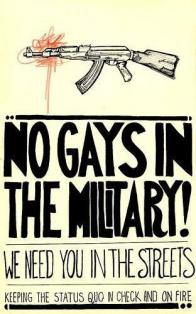 Muñoz died too soon in 2014, and we lost many things, but we still have all these radical possibilities he set down. Muñoz wants to reclaim queerness. In light of the above responses, maybe this is a more ambitious dream than he realised. We seem to have lost all understanding of queerness. It is radical, deliberately unclear, non-conformist, non-binary, a rejection of all the borders heteronormativity has set in place.
Muñoz died too soon in 2014, and we lost many things, but we still have all these radical possibilities he set down. Muñoz wants to reclaim queerness. In light of the above responses, maybe this is a more ambitious dream than he realised. We seem to have lost all understanding of queerness. It is radical, deliberately unclear, non-conformist, non-binary, a rejection of all the borders heteronormativity has set in place. 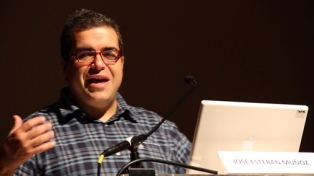
 For Muñoz, too, “Queerness is not yet here. Queerness is an ideality. Put another way, we are not yet queer. We may never touch queerness, but we can feel it as the warm illumination of a horizon imbued with potentiality.” Queerness must be theorised, because we must theorise a way out of heteronormativity. Only then will we find a way out of patriarchy and a binary gender system that loves nothing but borders and definitions. This is why queer does not mean LGBT. Or LGBTQIA. While those identities have been politically useful, they are not radical. They do not recognise the politics of desire, that rather than being natural or located in genes, it is fluid.
For Muñoz, too, “Queerness is not yet here. Queerness is an ideality. Put another way, we are not yet queer. We may never touch queerness, but we can feel it as the warm illumination of a horizon imbued with potentiality.” Queerness must be theorised, because we must theorise a way out of heteronormativity. Only then will we find a way out of patriarchy and a binary gender system that loves nothing but borders and definitions. This is why queer does not mean LGBT. Or LGBTQIA. While those identities have been politically useful, they are not radical. They do not recognise the politics of desire, that rather than being natural or located in genes, it is fluid. 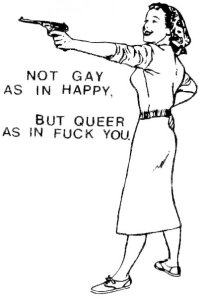 So, when we learn to see queerness we see that it is “a structuring and educated mode of desiring that allows us to see and feel beyond the quagmire of the present. The here and now is a prison house. We must strive, in the face of the here and now’s totalising rendering of reality, to think and feel a then and there.” The pragmatism of the LGBT agenda does not allow it to think of this future. It wants to be included in heteronormativity. Marriage, the family, the military, the mainstream patriarchal institutions that hold a certain way of relating to others as “normal.” Obviously marriage should be open to all. But rewinding a little, we should ask ourselves why marriage is the end goal. Is it really to know that the state sanctions our relationship? Why do we feel the need for that? Can we imagine a more radical utopia?
So, when we learn to see queerness we see that it is “a structuring and educated mode of desiring that allows us to see and feel beyond the quagmire of the present. The here and now is a prison house. We must strive, in the face of the here and now’s totalising rendering of reality, to think and feel a then and there.” The pragmatism of the LGBT agenda does not allow it to think of this future. It wants to be included in heteronormativity. Marriage, the family, the military, the mainstream patriarchal institutions that hold a certain way of relating to others as “normal.” Obviously marriage should be open to all. But rewinding a little, we should ask ourselves why marriage is the end goal. Is it really to know that the state sanctions our relationship? Why do we feel the need for that? Can we imagine a more radical utopia? 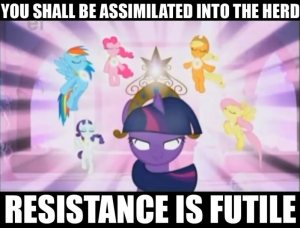 After all, a “claim to the pragmatic is the product of a short-sighted here that fails to include anything but an entitled and privileged world. The there of queer utopia cannot simply be that of the faltering yet still influential nation-state.” The desire for marriage is just that – a desire. We cannot pretend it is natural, a biological consequence of genetic monogamy. Our desires are political. Judith Butler’s essay “Is Kinship Always Already Heterosexual?” is one of the best expressions of how we can queer the gay marriage debate that I’ve ever read. Finally I understand the real political and relational implications of prizing marriage as an institution.
After all, a “claim to the pragmatic is the product of a short-sighted here that fails to include anything but an entitled and privileged world. The there of queer utopia cannot simply be that of the faltering yet still influential nation-state.” The desire for marriage is just that – a desire. We cannot pretend it is natural, a biological consequence of genetic monogamy. Our desires are political. Judith Butler’s essay “Is Kinship Always Already Heterosexual?” is one of the best expressions of how we can queer the gay marriage debate that I’ve ever read. Finally I understand the real political and relational implications of prizing marriage as an institution.  For Butler, we must ask “what forms of relationship ought to be legitimated by the state. The crisis of legitimation can be considered from a number of perspectives, but let us consider for the moment the ambivalent gift that legitimation can become. To be legitimated by the state is to enter into the terms of legitimation offered there and to find that one’s public and recognisable sense of personhood is fundamentally dependent on the lexicon of that legitimation.” And, scarily, the actual debate shuts down the kind of possibilities that queerness sees on the horizon. “Here a certain normative crisis ensues. On the one hand, it is important to mark how the field of intelligible and speakable sexuality is circumscribed so that we can see how options outside of marriage are becoming foreclosed as unthinkable, and how the terms of thinkability are enforced by the narrow debates over who and what will be included in the norm.”
For Butler, we must ask “what forms of relationship ought to be legitimated by the state. The crisis of legitimation can be considered from a number of perspectives, but let us consider for the moment the ambivalent gift that legitimation can become. To be legitimated by the state is to enter into the terms of legitimation offered there and to find that one’s public and recognisable sense of personhood is fundamentally dependent on the lexicon of that legitimation.” And, scarily, the actual debate shuts down the kind of possibilities that queerness sees on the horizon. “Here a certain normative crisis ensues. On the one hand, it is important to mark how the field of intelligible and speakable sexuality is circumscribed so that we can see how options outside of marriage are becoming foreclosed as unthinkable, and how the terms of thinkability are enforced by the narrow debates over who and what will be included in the norm.” 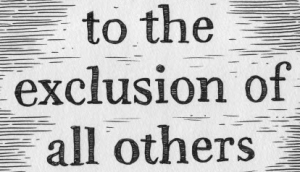 I hope you are sufficiently frightened by now. But don’t worry, Butler has some (not uncommon) words of comfort. “On the other hand, there is always the possibility of savouring the status of unthinkability, if it is a status, as the most critical, the most radical, the most valuable. As the sexually unrepresentable, such sexual possibilities can figure the sublime within the contemporary field of sexuality, a site of pure resistance, a site uncoopted by normativity. But how does one think politics from such a site of unrepresentability?” I think this is Muñoz’s project. And he manages to represent it in the most hopeful, colourful way we could ask for in this conservative time. He does it by savouring that unthinkability, using the fluidity, sensuousness and playfulness that he wants for his queer utopia. Queerness undermines all our ideas of relationality, intimacy, what desires we classify as important. For Muñoz queerness is an “impulse that we see in everyday life. This impulse is to be glimpsed as something that is extra to the everyday transaction of heteronormative capitalism.” It is uncontained. A “stepping out of the linearity of straight time.” It is joyful, because tied up with all the rainbow of emotions: sadness, happiness, despair, anger, excitement. “Queerness’s ecstatic and horizontal temporality is a path and a movement to a greater openness to the world.” For me, Muñoz’s idea that queerness is on the horizon, a utopian dream, something nostalgic but also hopeful, is about kindness. It’s about greater affective awareness. That is a weird made up phrase, but I think I mean being more aware of our emotions, their flow into and out of other people and the physical world surrounding us. In patriarchal heteronormativity, relationships designated as romantic, sexual and monogamous have always been about power. Queerness lets us hope for greater kindness, because greater fluidity. Kate Millett (in “Sexual Politics“) analyses Norman Mailer’s misogyny as a result of his belief that relationships are like war: “As the formula of ‘fucking as conquest’ holds true, the conquest is not only over the female, but over the male’s own fears for his masculinity, his courage, his dominance, the test of erection. To fail at any enterprise is to become female, defeated by the lurking treachery of Freudian bisexuality, the feminine in a man giving out like a trick knee at a track meet. Since all this is so arduous, men are, Mailer believes, self-evidently entitled to victory, their ‘existential assertion.’ Reminding his teammates that ‘nobody was born a man’ Mailer lays down the regulations – ‘you earned your manhood, provided you were good enough, bold enough.’”
I hope you are sufficiently frightened by now. But don’t worry, Butler has some (not uncommon) words of comfort. “On the other hand, there is always the possibility of savouring the status of unthinkability, if it is a status, as the most critical, the most radical, the most valuable. As the sexually unrepresentable, such sexual possibilities can figure the sublime within the contemporary field of sexuality, a site of pure resistance, a site uncoopted by normativity. But how does one think politics from such a site of unrepresentability?” I think this is Muñoz’s project. And he manages to represent it in the most hopeful, colourful way we could ask for in this conservative time. He does it by savouring that unthinkability, using the fluidity, sensuousness and playfulness that he wants for his queer utopia. Queerness undermines all our ideas of relationality, intimacy, what desires we classify as important. For Muñoz queerness is an “impulse that we see in everyday life. This impulse is to be glimpsed as something that is extra to the everyday transaction of heteronormative capitalism.” It is uncontained. A “stepping out of the linearity of straight time.” It is joyful, because tied up with all the rainbow of emotions: sadness, happiness, despair, anger, excitement. “Queerness’s ecstatic and horizontal temporality is a path and a movement to a greater openness to the world.” For me, Muñoz’s idea that queerness is on the horizon, a utopian dream, something nostalgic but also hopeful, is about kindness. It’s about greater affective awareness. That is a weird made up phrase, but I think I mean being more aware of our emotions, their flow into and out of other people and the physical world surrounding us. In patriarchal heteronormativity, relationships designated as romantic, sexual and monogamous have always been about power. Queerness lets us hope for greater kindness, because greater fluidity. Kate Millett (in “Sexual Politics“) analyses Norman Mailer’s misogyny as a result of his belief that relationships are like war: “As the formula of ‘fucking as conquest’ holds true, the conquest is not only over the female, but over the male’s own fears for his masculinity, his courage, his dominance, the test of erection. To fail at any enterprise is to become female, defeated by the lurking treachery of Freudian bisexuality, the feminine in a man giving out like a trick knee at a track meet. Since all this is so arduous, men are, Mailer believes, self-evidently entitled to victory, their ‘existential assertion.’ Reminding his teammates that ‘nobody was born a man’ Mailer lays down the regulations – ‘you earned your manhood, provided you were good enough, bold enough.’” 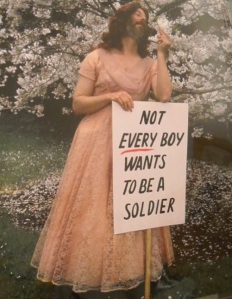 If, as queerness lets us hope for, our identities are not tied up with gender, with proving at every step our masculinity, or our femininity, then our relationships are no longer about power. We can forget. We can be free. But Norman Mailer also recognised that this is a frightening prospect. What do we do once all our ideas of “normal,” so tied up with gender and heternormativity, are undone? The utopia becomes a nightmare, because our identities no longer have a familiar fixed point. Millett describes this nightmare: “The real abyss which portentous phrases such as ‘existential dread’ were invented to mask is the fear of nonexistence. That, or the secret terror of homosexuality; a mixture of sin, fascination, and fear which drives Mailer to his heterosexual posturing. To be faggot, damned, leprous – to cease to be virile were either to cease to be – or to become the most grotesque form of feminine inferiority – queer.” But why is this new mode of desiring so inferior? Because: “In a climate of sexual counterrevolution, homosexuality constitutes the mortal offense against heterosexual orthodoxy, the unforgivable sin that sends one off irreparably in the vast grey fields of virility’s damned.”
If, as queerness lets us hope for, our identities are not tied up with gender, with proving at every step our masculinity, or our femininity, then our relationships are no longer about power. We can forget. We can be free. But Norman Mailer also recognised that this is a frightening prospect. What do we do once all our ideas of “normal,” so tied up with gender and heternormativity, are undone? The utopia becomes a nightmare, because our identities no longer have a familiar fixed point. Millett describes this nightmare: “The real abyss which portentous phrases such as ‘existential dread’ were invented to mask is the fear of nonexistence. That, or the secret terror of homosexuality; a mixture of sin, fascination, and fear which drives Mailer to his heterosexual posturing. To be faggot, damned, leprous – to cease to be virile were either to cease to be – or to become the most grotesque form of feminine inferiority – queer.” But why is this new mode of desiring so inferior? Because: “In a climate of sexual counterrevolution, homosexuality constitutes the mortal offense against heterosexual orthodoxy, the unforgivable sin that sends one off irreparably in the vast grey fields of virility’s damned.”
Butler put this nightmare in a way that still rings true in 2014: “Many people feel that who they are as egos in the world, whatever imaginary centres they have, would be radically dissolved were they to engage in homosexual relations. They would rather die than engage in homosexual relations. For these people homosexuality represents the prospect of the psychotic dissolution of the subject.”
Heteronormativity barely allows us to think outside of its barriers. Though it allows for “alternative” identities – LGBT identities – these must be outside a heterosexual “centre.” They must also be containable. In no way may the fluidity that queerness promises be allowed to dissolve this centre and mix up our relationships like spreading ink. That would be psychotic dissolution.  If heteronormativity says something must be one thing or the other, queerness says no, it can be both or neither. Hope and loss can be here at once. “We can understand queerness itself as being filled with the intention to be lost. Queerness is illegible and therefore lost in relation to the straight minds’ mapping of space. Queerness is lost in space or lost in relation to the space of heteronormativity.” For anyone who has felt the strictures of heteronormativity as painful, this is solace. Yes, it’s something like pride: “To accept loss the way in which one’s queerness will always render one lost to a world of heterosexual imperatives, codes, and laws. To accept loss is to accept queerness – or more accurately, to accept the loss of heteronormativity, authorisation, and entitlement.” You are lost, but this is why you are able to hope. This is why queerness is not related to your “object of desire” and especially not the gender of that object. It is instead a mode of desiring and a refusal to be mapped by heteronormativity’s instruments.
If heteronormativity says something must be one thing or the other, queerness says no, it can be both or neither. Hope and loss can be here at once. “We can understand queerness itself as being filled with the intention to be lost. Queerness is illegible and therefore lost in relation to the straight minds’ mapping of space. Queerness is lost in space or lost in relation to the space of heteronormativity.” For anyone who has felt the strictures of heteronormativity as painful, this is solace. Yes, it’s something like pride: “To accept loss the way in which one’s queerness will always render one lost to a world of heterosexual imperatives, codes, and laws. To accept loss is to accept queerness – or more accurately, to accept the loss of heteronormativity, authorisation, and entitlement.” You are lost, but this is why you are able to hope. This is why queerness is not related to your “object of desire” and especially not the gender of that object. It is instead a mode of desiring and a refusal to be mapped by heteronormativity’s instruments. “Being lost, in this particular queer sense, is to relinquish one’s role (and subsequent privilege) in the heteronormative order. The dispossessed are appropriately adept at critiquing possession as illogical. To accept the way in which one is lost is to be also found and not found in a particularly queer fashion.” It is tempting to want to be included. Sometimes it is even necessary. Especially when the alternative is the worst consequences of social exclusion – institutional discrimination, violence and death. That’s why queer utopia must be on the horizon for everyone. That instead of the heteronormative dictate that inclusion be on “our” terms, there must be no terms. Millett puts the lack of awareness that comes from desiring normativity – that is, outsiders’ longing for inclusion within heteronormativity – very bluntly: “Oppression creates a psychology in the oppressed. Marxism, though adroit at analysing the economic and political situation of such persons, has often neglected, perhaps out of nervous dismay, to notice how thoroughly the oppressed are corrupted by their situation, how deeply they envy and admire their masters, how utterly they are polluted by their ideas and values,
“Being lost, in this particular queer sense, is to relinquish one’s role (and subsequent privilege) in the heteronormative order. The dispossessed are appropriately adept at critiquing possession as illogical. To accept the way in which one is lost is to be also found and not found in a particularly queer fashion.” It is tempting to want to be included. Sometimes it is even necessary. Especially when the alternative is the worst consequences of social exclusion – institutional discrimination, violence and death. That’s why queer utopia must be on the horizon for everyone. That instead of the heteronormative dictate that inclusion be on “our” terms, there must be no terms. Millett puts the lack of awareness that comes from desiring normativity – that is, outsiders’ longing for inclusion within heteronormativity – very bluntly: “Oppression creates a psychology in the oppressed. Marxism, though adroit at analysing the economic and political situation of such persons, has often neglected, perhaps out of nervous dismay, to notice how thoroughly the oppressed are corrupted by their situation, how deeply they envy and admire their masters, how utterly they are polluted by their ideas and values, 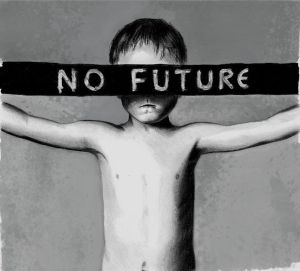 how even their attitude toward themselves is dictated by those who own them.” Queerness denies such ownership. Muñoz again dismisses pragmatism by declaring that “political hope fails queers because, like signification, it was not originally made for us. It resonates only on the level of reproductive futurity.” Here he refers to the fact that all political discourse and our ideas of the future are centred on the child – that symbolic force of heteronormativity. Muñoz works with the idea of that uncompromising queer theorist Lee Edelman who attacks the symbol of the child: “Edelman recommends that queers give up hope and embrace a certain negation endemic to our abjection within the symbolic. What we get, in exchange for giving up on futurity, abandoning politics and hope, is a certain jouissance that at once defines and negates us. Edelman’s psychoanalytic optic reveals that the social is inoperable for the always already shattered queer subject.” Depressing? Maybe. But as Millett celebrates in her description of a drag queen, queerness, by refusing all standards of normativity, can show us a horizon unclouded by the anxiety inherent in gender norms, in the protection of the “normal” family, and in the desperation of “living through” our children:
how even their attitude toward themselves is dictated by those who own them.” Queerness denies such ownership. Muñoz again dismisses pragmatism by declaring that “political hope fails queers because, like signification, it was not originally made for us. It resonates only on the level of reproductive futurity.” Here he refers to the fact that all political discourse and our ideas of the future are centred on the child – that symbolic force of heteronormativity. Muñoz works with the idea of that uncompromising queer theorist Lee Edelman who attacks the symbol of the child: “Edelman recommends that queers give up hope and embrace a certain negation endemic to our abjection within the symbolic. What we get, in exchange for giving up on futurity, abandoning politics and hope, is a certain jouissance that at once defines and negates us. Edelman’s psychoanalytic optic reveals that the social is inoperable for the always already shattered queer subject.” Depressing? Maybe. But as Millett celebrates in her description of a drag queen, queerness, by refusing all standards of normativity, can show us a horizon unclouded by the anxiety inherent in gender norms, in the protection of the “normal” family, and in the desperation of “living through” our children:
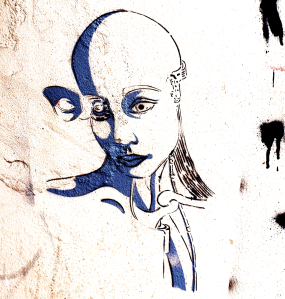 “But as she minces along a street in the Village, the storm of outrage an insouciant queen in drag may call down is due to the fact that she is both masculine and feminine at once – or male, but feminine. She has made gender identity more than frighteningly easy to lose, she has questioned its reality at a time when it has attained the status of a moral absolute and a social imperative. She has defied it and actually suggested its negation.”
“But as she minces along a street in the Village, the storm of outrage an insouciant queen in drag may call down is due to the fact that she is both masculine and feminine at once – or male, but feminine. She has made gender identity more than frighteningly easy to lose, she has questioned its reality at a time when it has attained the status of a moral absolute and a social imperative. She has defied it and actually suggested its negation.”
Being lost isn’t always a bad thing. Confusing people, even causing psychotic dissolution, which may last only a second before someone re-establishes their limits of normativity by casting you as deviant, can be enjoyable. This is the utopian possibility of negation. But of course this must be conscious. After all, as Muñoz puts it, “heteronormative culture makes queers think that both the past and the future do not belong to them.” In spite of this exclusion, we can create. “A nothing is a utopian act insofar as it acknowledges a lack that is normalised as reality and attempts to work with and through nothingness and ephemerality: it is both a critique and an additive or reparative gesture. Queer utopian practice is about “building” and “doing” in response to that status of nothing assigned to us by the heteronormative world.”  This is a conscious way of creating the world through a conscious being in the world. Knowing that being in the world is not just heteronormativity’s linear time, romance, monogamy, appropriate feelings, acceptable gestures. A queer mode of being in the world is a fuller experience of relationality. Get ready for the accusations of irresponsibility, childishness, lack of commitment, all the insults pegged at those who don’t wish to comply with heteronormativity. Because, as Muñoz says, such behaviour is often seen as pointless rebellion, without political motive. But “escape itself need not be a surrender, but, instead, may be more like a refusal of a dominant order and its systemic violence.” Muñoz tells us that utopia is about hope and failure together. “Hope and disappointment operate within a dialectical tension in this notion of queer utopia. Queerness’s failure is temporal and, from this project’s perspective, potentially utopian, and inasmuch as it does not
This is a conscious way of creating the world through a conscious being in the world. Knowing that being in the world is not just heteronormativity’s linear time, romance, monogamy, appropriate feelings, acceptable gestures. A queer mode of being in the world is a fuller experience of relationality. Get ready for the accusations of irresponsibility, childishness, lack of commitment, all the insults pegged at those who don’t wish to comply with heteronormativity. Because, as Muñoz says, such behaviour is often seen as pointless rebellion, without political motive. But “escape itself need not be a surrender, but, instead, may be more like a refusal of a dominant order and its systemic violence.” Muñoz tells us that utopia is about hope and failure together. “Hope and disappointment operate within a dialectical tension in this notion of queer utopia. Queerness’s failure is temporal and, from this project’s perspective, potentially utopian, and inasmuch as it does not 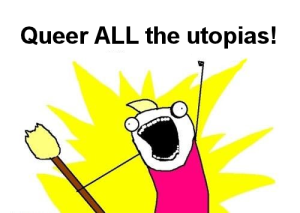 adhere to straight time, interrupting its protocols, it can be an avant-garde practice that interrupts the here and now. To perform such interruptions is not glorious or heroic work.” Well, that’s a disappointment. How can we refuse heteronormativity and take on all the backlash that comes with such a choice, if we don’t even have the comfort of knowing we are heroines? More of the disappointment of utopia, I suppose. But is has to be conscious, because of the pure difficulty. I have so much internalised heteronormativity that I need to remind myself daily what queerness is. But Muñoz gives us more hope. Queerness isn’t just intellectual knowledge, a way to critically encounter situations. It’s that way of being in the world. It’s embodied. It’s relational. It’s intimate. It’s here and now, future and past. That is, “We know time through the field of the affective, and affect is tightly bound to temporal.” It’s emotional. It’s ecstatic. For those of us who want to think a way out of heteronormativity without going down a path to existential dread, Muñoz has painted the horizon. This is the utopia of the not yet here, illuminated with the glitter of the past.
adhere to straight time, interrupting its protocols, it can be an avant-garde practice that interrupts the here and now. To perform such interruptions is not glorious or heroic work.” Well, that’s a disappointment. How can we refuse heteronormativity and take on all the backlash that comes with such a choice, if we don’t even have the comfort of knowing we are heroines? More of the disappointment of utopia, I suppose. But is has to be conscious, because of the pure difficulty. I have so much internalised heteronormativity that I need to remind myself daily what queerness is. But Muñoz gives us more hope. Queerness isn’t just intellectual knowledge, a way to critically encounter situations. It’s that way of being in the world. It’s embodied. It’s relational. It’s intimate. It’s here and now, future and past. That is, “We know time through the field of the affective, and affect is tightly bound to temporal.” It’s emotional. It’s ecstatic. For those of us who want to think a way out of heteronormativity without going down a path to existential dread, Muñoz has painted the horizon. This is the utopia of the not yet here, illuminated with the glitter of the past. 

I really enjoyed your writing. I thought I would inform, you of a minor mistake, Jose Munoz died in 2014, but you are correct that it was too soon!
Ah, thank you so much! Corrected.